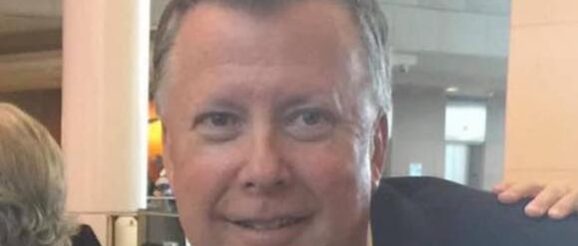Tom Lee: Radio Is Lacking Innovation, Imagination, and Fearless Leadership | Barrett Sports Media

Recently on my Sports With Friends podcast, I caught up with longtime sports radio program director Tom Lee. In between reminiscing about old times from our days working together at KJR in Seattle, we talked about the differences he has seen in the industry for a quarter of a century.
“It’s a tough business,” Lee said. “Especially in these days of the pandemic and everything that we’re going through in 2020. It is hard to make money. It’s hard to…to not so much even show a profit, but show less of a loss in today’s advertising world.”
Lee has run sports radio stations all over the country in both major markets and powerful local stations. He was the first program director when FOX Sports Radio launched in 2000. Lee has also worked at ESPN Radio in Dallas, KJR in Seattle, WIP in Philadelphia, and the The Beast 980 in Los Angeles.
Recent layoffs at ESPN Radio, Entercom, iHeartMedia, Cumulus, and other companies have been a byproduct of downsizing within sports radio on both the local and national level. As the conversation evolved, Lee demonstrated that the pandemic isn’t all that the business is facing.
“It’s become so much of the same old thing,” he claimed. “You don’t hear a lot of the innovation that maybe we were allowed to do a few years ago. It lacks imagination. It lacks some leadership that’s relentless and fearless if you’re really going to win in ratings.”
Two major issues facing sports radio are competition from outside sources and a rating system that focuses on each minute of airtime as opposed to the personalities that make it great.
“Podcasts compete with radio,” Lee added. “You can’t be listening to the radio when you’re listening to a podcast. You’ve got the Satellite Radio companies. You’ve got so many more options when you’re competing for the eyeballs and the ears of potential listeners.”
I believe that podcasts don’t compete with each other. Anyone can listen to a podcast from Barrett Sports Media and then download Sports With Friends and listen whenever they want. If a listener puts on a podcast, that is time he/she is not spending listening to live radio.
“A lot of big corporate companies do a lot of good things. I just think it’s become a little bit too cookie-cutter rather than imaginative and daring.”
Lee got his start in Kansas City at KMBZ from 1987-1993. He went to KJR in Seattle from 1993 to 2000. During that time, KJR delivered the highest ratings of all sports stations in America.
Ratings were then measured by diaries and the focus was more on the hosts. Lee made sure listeners knew the names of the hosts and they wrote those names in Nielsen diaries.
I worked for Tom from 1998-2000 when he made me his Sports Director at KJR in Seattle. When he left for FOX Sports Radio in Los Angeles, he helped me become a reporter there, and later, a baseball insider. That subsequently led to me meeting my wife (at Giants Stadium covering a Jets game for FSR in 2003). So it would go without saying that he has had a massive impact on my life and career, and we discussed that in the podcast.
Since implementing Portable People Meters (PPM) in the 2000s, stations still want listeners, but the focus has changed. The emphasis has shifted more towards topics over being the personality that would drive someone to write down their name in a diary.
Program directors have told me not to let 15 minutes go by on a sports radio show and not bring up the NFL. That’s not to say the NFL isn’t great, but good sports radio can come from a thought-provoking topic that may or may not be about football. The listener should be driven by the voice that’s on the air more than the subject he or she is discussing.
“It used to be, we’d put a show on the radio, but wouldn’t check the ratings for three months or six months. You would get your quarterlies. Right now, you look at weekly trends and that’s where the NFL does drive ratings for sports radio.”
As companies struggle financially, the challenge of finding the next great sports radio host is getting more and more difficult.
“I don’t think the radio industry as a whole has taken the time to train and create the next level of great talk show host,” Lee said. “Most managers and program directors don’t have enough time in their day to work with the talent and make them better. “
Lee lamented, “that’s part of the reason I think that radio is declined now. We haven’t invested in our talent, which is really what drives radio. It is the on-air talent that makes radio stations great.”
“I think it can still be really good,” Lee concluded. “There are stations that are still doing it well, but I think there are fewer than there used to be. I just think it needs leaders that are more fearless and (know) it’s okay to take a chance.”
The entire interview can be heard here, on Spotify or wherever you can listen to podcasts.
